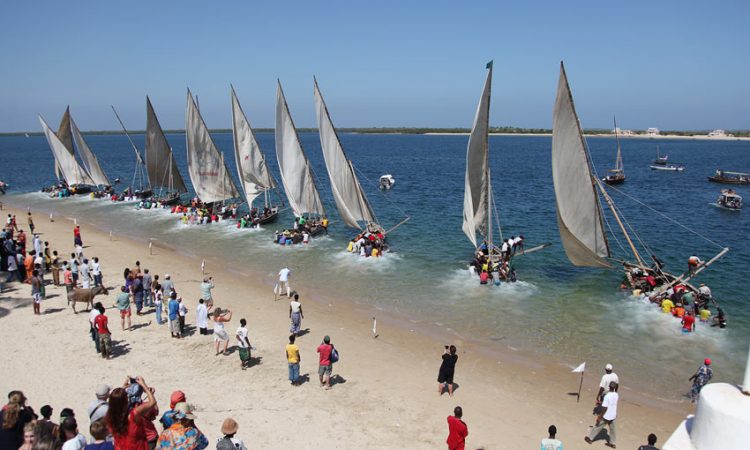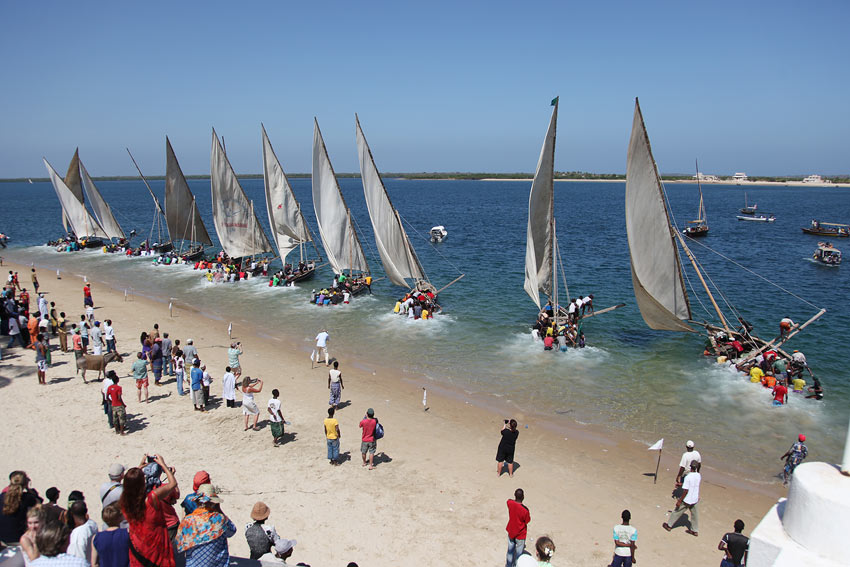
Lamu Cultural Festivals
Lamu Cultural Festivals : The Lamu Cultural Festival is an annual event held in Lamu Island, Kenya. Lamu Island is located on the north-eastern coast of Kenya and is known for its rich Swahili culture and historical architecture. The festival aims to celebrate and promote the unique cultural heritage of the Lamu people.
The Lamu Cultural Festival typically takes place in November and lasts for several days. It showcases a variety of traditional activities, including music, dance, art, food, and sports. The festival attracts both locals and tourists who come to experience the vibrant atmosphere and immerse themselves in the local traditions.
During the festival, you can expect to witness traditional Swahili dances like the dhow dance, taarab music performances, and poetry recitations. There are also exhibitions of local arts and crafts, showcasing the intricate woodcarvings, textiles, and jewellery produced by the skilled artisans of the region.
One of the highlights of the Lamu Cultural Festival is the dhow race, where traditional sailing boats compete against each other in a thrilling race along the Lamu archipelago. This race is not only a display of skill but also a celebration of the historical significance of the dhow, which has been an integral part of Lamu’s maritime culture for centuries.
The festival also offers an opportunity to sample delicious Swahili cuisine, including mouth-watering seafood dishes like grilled fish and crab, as well as traditional Swahili delicacies like biryani and pilau.
Apart from the cultural activities, the Lamu Cultural Festival provides a chance to explore the narrow, winding streets of Lamu Old Town, a UNESCO World Heritage site. Visitors can admire the unique Swahili architecture, characterized by intricately carved wooden doors, coral stone buildings, and rooftop terraces.
Attending the Lamu Cultural Festival allows visitors to engage with the local community, learn about their customs and traditions, and appreciate the cultural diversity of the region. It is a vibrant and immersive experience that showcases the beauty and richness of the Swahili culture.
The Highlights of the Lamu Cultural Festival
The Lamu Cultural Festival is a vibrant and colorful celebration held annually in Lamu Island, Kenya. It showcases the rich cultural heritage of the Swahili people and offers visitors a unique opportunity to immerse themselves in the local traditions, music, dance, and cuisine.
Traditional Dhow Races
One of the main highlights of the festival is the traditional dhow races. Dhows are traditional sailing boats that have been used for centuries in the region for fishing and transportation. During the festival, these beautiful boats compete in thrilling races, attracting locals and tourists alike.
Traditional dhow races are an integral part of the Lamu Cultural Festival. Dhows are traditional sailing boats that have been used for centuries in the Swahili coastal regions of East Africa for fishing, transportation, and trade. During the festival, these majestic boats take centre stage as they compete in thrilling races, showcasing the skill and craftsmanship of the local sailors.
The dhow races are held in the waters around Lamu Island, creating a picturesque backdrop for the event. Spectators line the shores, eagerly watching as the dhows navigate through the waves, propelled by the wind and the expertise of the crew. The races are not only a test of speed but also a demonstration of the sailors’ knowledge of the tides, currents, and winds.
The dhows used in the races vary in size and design, ranging from smaller vessels to larger ones with multiple sails. They are often decorated with colorful patterns and motifs, reflecting the Swahili culture and aesthetics. The sight of these beautiful boats gliding through the water is truly captivating.

The dhow races attract both local participants and visitors from around the world. It is a competitive and festive atmosphere, with cheers and encouragement filling the air. The races provide a glimpse into the maritime heritage of the region and pay homage to the important role that dhows have played in the coastal communities’ livelihoods.
Attending the dhow races during the Lamu Cultural Festival offers a unique opportunity to witness a traditional sporting event and appreciate the skills of the local sailors. It is a thrilling and memorable experience that brings together the elements of culture, history, and the beauty of the sea.
Traditional Swahili Music and Dance
The festival is a platform for showcasing the vibrant Swahili music and dance forms. Local musicians and dancers perform traditional songs and dances, providing a mesmerizing and lively experience for the audience.
Traditional Swahili music and dance are an integral part of the cultural fabric of the Swahili people in East Africa. During festivals like the Lamu Cultural Festival, these art forms take centre stage, providing a captivating and vibrant experience for participants and spectators. Here are some aspects of traditional Swahili music and dance:
Taarab Music: Taarab is a popular genre of music in the Swahili culture. It combines influences from Arab, Indian, and African musical traditions, creating a unique sound. Taarab music is characterized by melodious tunes, soulful vocals, and the use of instruments such as the oud, violin, accordion, and various percussion instruments. The lyrics often focus on love, relationships, and social issues. During the festival, you can expect to witness live Taarab performances, showcasing the talent of local musicians and singers.
Chakacha Dance: Chakacha is a traditional Swahili dance form that originated in the coastal regions of Kenya and Tanzania. It is a lively and energetic dance characterized by rhythmic hip movements, shuffling steps, and the use of rattles and drums. The dancers, both men and women, often wear colorful traditional attire and engage in synchronized movements that create an electrifying atmosphere. Chakacha dance performances are a common sight during the Lamu Cultural Festival, allowing visitors to experience the joy and energy of this traditional dance form.
Mwanzele Dance: Mwanzele is another traditional Swahili dance style that is performed during cultural festivals. It involves a group of dancers forming a circle or a line and executing synchronized movements to the beat of drums and other percussive instruments. The dance is characterized by intricate footwork, hand gestures, and vibrant costumes. Mwanzele is often accompanied by lively singing, creating a dynamic and engaging performance.
Traditional Instruments: Traditional Swahili music is enriched by a variety of instruments. Some common instruments used in performances include the oud (a stringed instrument similar to a lute), the qanun (a zither-like instrument), the violin, the accordion, and a range of percussion instruments such as drums, tambourines, and rattles. These instruments come together to create a melodic and rhythmic ensemble that accompanies the singers and dancers.
Call-and-Response Singing: Call-and-response singing is a prevalent aspect of traditional Swahili music. It involves a lead singer or group of singers performing a verse or a line, and the audience or other singers responding with a chorus or a repeated phrase. This interactive style of singing adds an engaging and participatory element to the performances, encouraging audience involvement and creating a sense of community.
Attending the Lamu Cultural Festival provides an excellent opportunity to immerse yourself in the enchanting world of traditional Swahili music and dance. It allows you to witness live performances, interact with local musicians and dancers, and appreciate the cultural richness of the region.
Traditional Food and Cuisine
The Lamu Cultural Festival is an excellent opportunity to savour authentic Swahili cuisine. Local delicacies such as biryani, pilau (spiced rice), samosas, and various seafood dishes are available for visitors to enjoy.
Traditional Swahili cuisine is a delicious fusion of flavours and influences from Arab, Indian, and African culinary traditions. During cultural festivals like the Lamu Cultural Festival, visitors have the opportunity to sample and enjoy a wide array of traditional Swahili dishes. Here are some highlights of the traditional food and cuisine you might find during the festival:
Biryani: Biryani is a popular and flavourful rice dish that is a staple in Swahili cuisine. It is typically made with fragrant long-grain rice cooked with spices such as turmeric, cumin, cardamom, and cloves. The rice is often layered with marinated meat (such as chicken, beef, or goat), fish, or vegetables, creating a rich and aromatic one-pot meal.
Pilau: Pilau is another beloved rice dish that is commonly enjoyed in Swahili culture. It features rice cooked with a blend of spices, including cinnamon, cloves, cumin, and cardamom. Meat, such as chicken, beef, or goat, is often added to enhance the flavours. The result is a hearty and flavourful dish that is enjoyed during festive occasions.
Samosas: Samosas are a popular savoury snack in Swahili cuisine. These triangular pastries are filled with a mixture of spiced meat (such as minced beef or chicken), vegetables, or lentils. The samosas are deep-fried until crispy and are often served with a side of tamarind or mint chutney.
Coconut-based Dishes: Coconut is a prominent ingredient in Swahili cuisine, thanks to the region’s abundant coconut palm trees. You can expect to find dishes like coconut rice, coconut fish curry, and coconut-based sauces and stews. The use of coconut adds a rich and creamy element to the dishes.
Seafood: Given its coastal location, seafood plays a significant role in Swahili cuisine. Fresh fish, prawns, crabs, and lobsters are commonly prepared in a variety of flavourful ways, such as grilled, steamed, or in spicy coconut curries. Swahili cuisine offers a delightful range of seafood options for seafood enthusiasts to savour.
Mandazi: Mandazi is a popular Swahili snack that resembles a sweet, deep-fried doughnut or a small bun. These slightly sweet and fluffy pastries are often enjoyed with a cup of tea or as a quick on-the-go snack.
Fresh Fruits: Kenya’s tropical climate allows for an abundance of delicious fruits. During the festival, you can find vendors selling fresh, juicy fruits such as mangoes, pineapples, watermelons, and bananas. It’s an excellent opportunity to indulge in the natural sweetness and flavours of the region.
These are just a few highlights of traditional Swahili food and cuisine. During the Lamu Cultural Festival, you can explore the local food stalls, taste a variety of dishes, and experience the vibrant flavours and aromas that make Swahili cuisine so unique and delightful.
Lamu Cultural Festivals : Swahili Poetry and Storytelling
The festival often includes poetry recitals and storytelling sessions, where local poets and storytellers captivate the audience with their lyrical performances and tales of Swahili culture and heritage.
Lamu Cultural Festivals : Traditional Crafts and Artwork
The festival offers a chance to explore and purchase unique Swahili crafts and artwork. Local artisans showcase their skills in wood carving, textile weaving, beadwork, and other traditional crafts, providing an opportunity to acquire handmade souvenirs.
Lamu Cultural Festivals : Cultural Parades and Performances Colorful parades featuring traditional costumes and vibrant displays are a common sight during the Lamu Cultural Festival. Cultural troupes from different communities come together to showcase their traditions through music, dance, and artistic performances.
Donkey Races
Lamu is known for its donkey population, and during the festival, there are often entertaining donkey races that take place. These races add an element of fun and excitement to the festivities.
Please note that the specific activities and highlights may vary from year to year, and it’s always best to check for the latest information on the Lamu Cultural Festival closer to the time you plan to attend.


